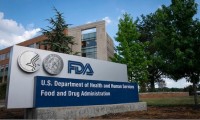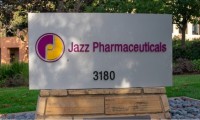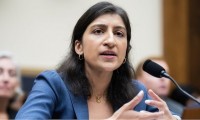-
As cancer players jump head-first into ADC field, Novartis CEO explains how he’s resisted the temptation
- Source: drugdu
- 90
- January 10, 2024
-
After a down year, FDA signs off on a bounty of new meds, including 7 from Pfizer
- Source: drugdu
- 223
- January 4, 2024
-
Big Pharma reworks China strategy, and job cuts are part of it
- Source: drugdu
- 195
- December 27, 2023
-
M&A saw an uptick in 2023. Analysts expect the trend to continue
- Source: drugdu
- 228
- December 26, 2023
-
Daiichi Sankyo scores $182M from Novartis settlement in long-running patent case
- Source: drugdu
- 107
- December 8, 2023
-
Pharma industry groups push initiatives against climate change at COP28
- Source: drugdu
- 98
- December 6, 2023
-
AbbVie Buys ImmunoGen in $10B Deal, Gains Access to ADC for Ovarian Cancer
- Source: drugdu
- 120
- December 4, 2023
-
Health Canada approves Jazz’s cannabis derived seizure therapy
- Source: drugdu
- 100
- November 28, 2023
-
Novartis drops subpoena request in trade-secret spat with Takeda
- Source: drugdu
- 112
- November 24, 2023
-
With filing in Sanofi and Mylan insulin lawsuit, FTC amps up scrutiny on pharma’s patent tactics
- Source: drugdu
- 102
- November 23, 2023
your submission has already been received.
OK
Subscribe
Please enter a valid Email address!
Submit
The most relevant industry news & insight will be sent to you every two weeks.













